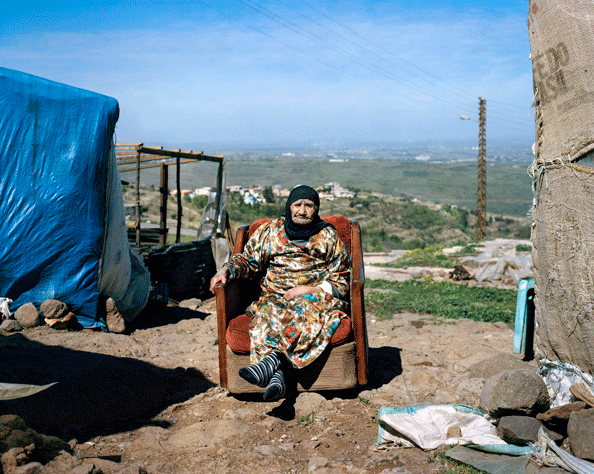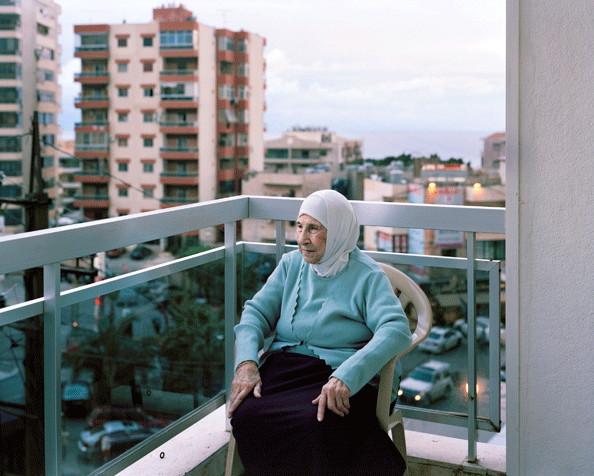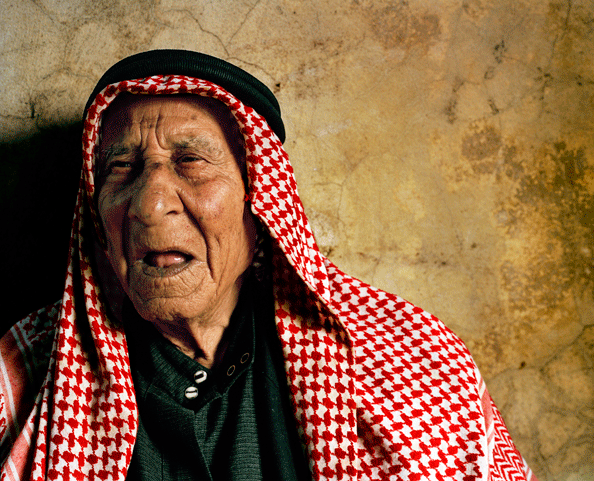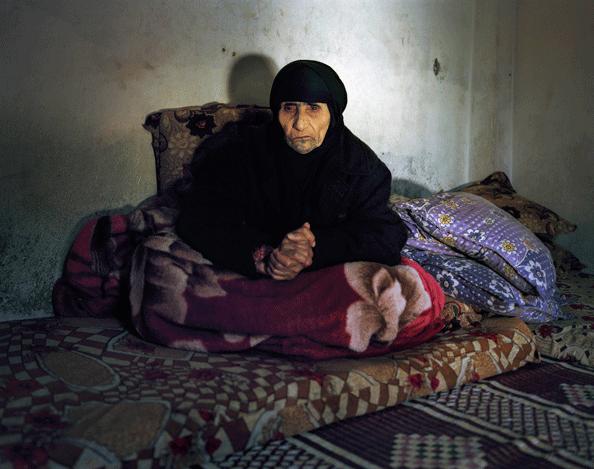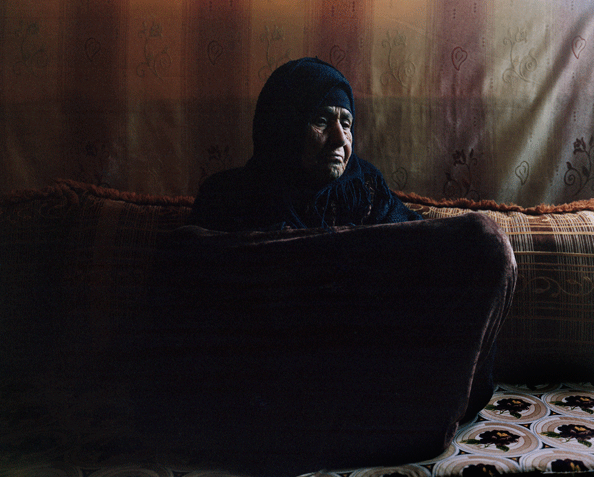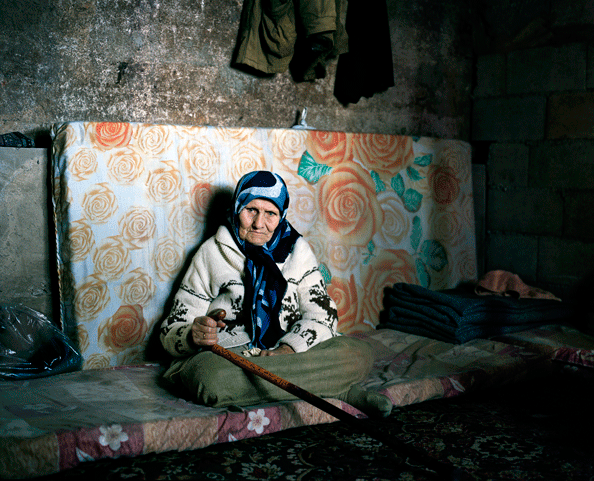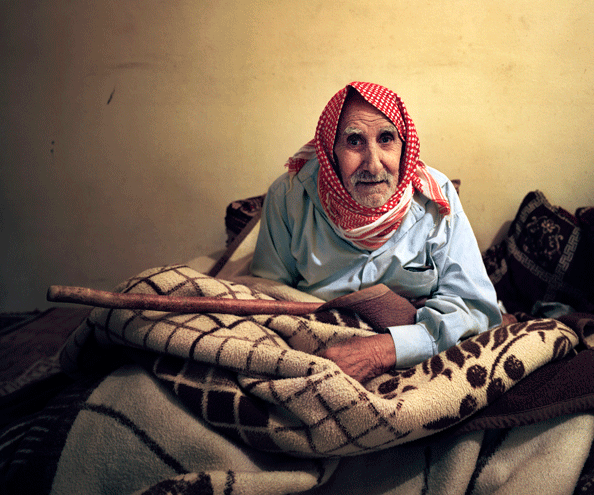Syria’s protracted crisis – three years of debilitating ruin and elusive compromise – has torn families from their homes, their country, and each other. The United Nations High Commissioner for Refugees (UNHCR) has registered over 2.5 million refugees from the Syrian conflict, with more than 1 million in Lebanon alone. Here, Emirates Woman looks at the centenarians – Syrians aged 100 plus – who are being forced from their homeland.
Often overlooked in this flood of humanity are the elderly, just as vulnerable as younger Syrians to the violence and social upheaval tearing Syria apart and even less well equipped to flee and to rebuild their lives once uprooted from all that they know.
Many have tried desperately to stay behind. But tens of thousands have embarked on the perilous journey across Syria’s borders into neighbouring countries like Lebanon and Jordan, abandoning their home.
“Elderly refugees are disproportionately affected by exile and displacement. They suffer more from health problems and have a harder time getting help,” says UNHCR Lebanon senior protection officer, Inna Gladkova. “UNHCR and its partner agencies are committed to identifying the vulnerable as they enter their host country and where possible providing additional medical coverage, cash assistance and food rations (through the World Food Programme).”
This series aims to shed light on the very oldest of Syrian refugees whose memories strike at the heart of what has been lost during the past three years of war in their homeland.
Dagha, 101 (main image)
From her family’s little tent on a hill in Lebanon, Dagha, used to listen to the shelling from across the border in her native Syria. Sitting quietly and mending clothes, she would try to figure out which part of Syria the shelling was coming from.
A year ago she suffered a stroke, which left her partially paralyzed, and now she just squeezes the hands of visitors and family members who come up to her to give her a kiss.
News arrives every week of more people who’ve died in her home village – including relatives. Her family members try not to tell her the details anymore. But they say she knows. She often cries in her sleep.
“Her biggest fear is that she’ll die in Lebanon,” says Fatima, her granddaughter. “Before her stroke when she was still able to talk as clearly as a teenager she’d say, ‘Bury me elsewhere when I die. Bury me in Syria…please promise me you’ll bury me at home.’”
Bahira, 100
“Syria is a masterpiece created by God, “ says Bahira. “You feel wonderful when it is in front of you.” She is recalling her homeland from her family’s new refuge just south of the Lebanese capital, Beirut, where she fled last year.
Today she lives in a fourth floor apartment, surrounded by children, grandchildren, and great grandchildren, too many, sometimes, to count.
Bahira aches for her homeland, a mythical place in her imagination: “Where we lived there was no mention of Sunni, or Christian, or Druze, no-one asked about religion and no-one was discriminated against,” she said. Bahira does not complain but her son admits that sometimes, in the middle of the night, he wakes to find her crying alone on the couch.
“She always asks about relatives back home and if the road to the village is open,” he says. “ She wants to know are there checkpoints, can we go back, can we leave today?”
Ghetwan, 100
Ghetwan and his wife, Khaduj have a long marriage. The couple wed 72 years ago, at the height of the Second World War. When asked what Khaduj loves most about her husband, she replies: “When he was younger, he was very poor and had nothing. But he was a very strong man…a real man. He could kick the a**es of 50 men!”
Today the couple live with a son and daughter-in-law, three grandchildren, and six great-grandchildren in a make-shift two-room shelter below a mechanic’s garage in the southern Lebanese town of Sidon. They fled their home in northern Syria after shelling destroyed their home.
The electricity goes out frequently. Most afternoons, his great grandchildren swarm around him: two generations bound in the same dim two-room radius.
His son reminds him that they’re in Lebanon, far from his goat-fields. A Lebanese neighbor sometimes takes him to his own field, where Ghetwan stands among the animals and thinks he’s finally back home.
Hamda, 106
A lot has changed in the 45 years since Hamda was last in Lebanon. Her husband, whom she lived with prior to Lebanon’s civil war in the Bekaa Valley town of Bar Elias, has since passed away. She’s also lost her eyesight, and now she is a refugee.
“Maybe it is a good thing that God took my eyesight before I saw the destruction of my country,” says Hamda, from the small rented home she now shares with her youngest son and his family.
As Bedouins, Hamda’s family and relatives led a nomadic lifestyle. She did not attend school. “We only used to play and sing,” she recalls. “Now, the children have classes and schools; we had camels and sheep.”
When Hamda speaks she evokes a lost age when people were honest and loving, but now, she says, everything has changed, “even if the war ends and we rebuild our homes, there are many things that can never be rebuilt. Syrians were never divided… alas, now they will never be the same.”
Tamam, 104
Tamam was born in 1910 and became a refugee over a century later when, along with her son, she fled her native country in 2013. Diminutive, she greets visitors with a warm smile and tells them to come sit close, she cannot hear well but assures us her memory is still as “good as a 20 year olds’.” She says she is deeply worried for the future of Syria.
Life in Syria was simple when she was growing up, she says. Waking at dawn, she would strap her youngest on her back and work in the fields: “We didn’t even have doctors in the villages because we did not need them,” she says. “We never got sick because we used to eat what we grew on our lands. It was so safe; we used to go out to get wood in the middle of the night…”
When she was very young, Tamam’s mother passed away and her father married off her and her sister at a very young age; “even before I hit puberty,” she says, leaning close and whispering so the men sitting nearby do not hear.
“My grandchildren watch the news and ask me, ‘Hababa, what is Sunni and Shi’ite?’ They don’t know. We never spoke about these things, we were all Syrians and that was enough for us.”
“I am devastated for my grandchildren and for the children of my country, their future is destroyed. I lived my life, but they won’t get to live theirs.”
Khaldiye, 103
Khaldiye has a favorite photograph. It is one of her twin-brother and mother standing together, hand-in-hand. Both have passed away. Indeed Khaldiye is the only one left alive of her immediate family and even this photo is now gone. It was left behind in Syria when she fled to Lebanon as a refugee. But, says Khaldiye, “I still see it in my mind every morning.”
Her late husband, 10 years her junior – “They all used to make fun of him for having an older wife,” she proudly recounts, “But he loved me” – was a general in the military and used to buy her an orange every day. “He would then peel it for me,” she recalls. “Men should always peel oranges for women.”
Khaldiye arrived in Lebanon from central Syria two years ago. Smart as a whip, she can still recite the names of 12 children, 30 grandchildren, and several great grandchildren. She lives near the Syrian border with her son’s family, and has begged them to sell her gold wedding ring to help make ends meet. But they refuse.
Mofleh, 103
Mofleh is reaping what he sowed. During the 2006 Israel-Lebanon war, he and his family willingly played host to a refugee family from Lebanon that had fled to his area in Syria. Six year’s later, when Mofleh’s family found themselves homeless, fleeing the Syrian civil war to Lebanon, the same family whom they had saved, saved them. Bilal, who was a boy at the time when his family fled to Syria, is taking care of Mofleh full time.
“I’m just returning the favour,” he says. Bilal’s own father died when he was younger. “We are all family now.”
Even so, Mofleh is having a hard time accepting his fate as a refugee. He cannot stop dreaming of Syria. He keeps his old ID, issued 70 years ago, in his shirt pocket.
Words: Lauren Bohn and Rawan al Kayat
Images: Andrew McConnell








